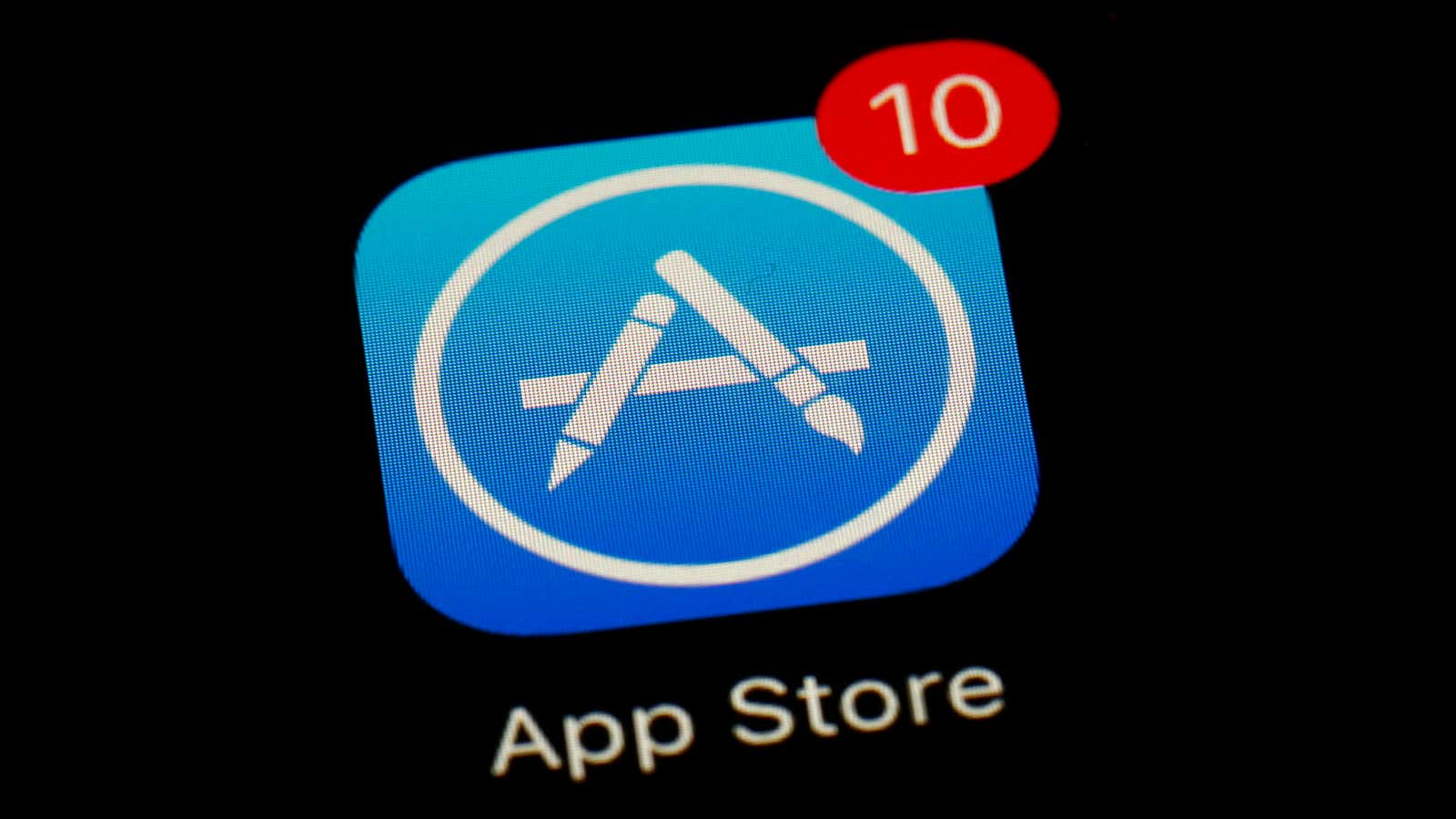A longstanding lawsuit against Apple over how it runs its App Store business can move forward, the US Supeme Court ruled today (May 13).
The class-action suit from a group of iPhone buyers argues that because Apple doesn’t let users download apps from anywhere other than its own App Store (which garners Apple a 30% commission on all sales), it has used its monopoly position to overcharge consumers. Apple v. Pepper claims that consumers have paid “hundreds of millions of dollars more” for apps and games as developers generally pass Apple’s fees onto them. Apple had contended that only app developers—rather than consumers themselves—could sue, based on a 1977 Supreme Court ruling pertaining to the sale of bricks to contractors, and indirect purchases.
In a 5-4 decision, it seems that the Supreme Court didn’t see much similarity between selling bricks to contractors and consumers buying software from Apple.
The suit can now proceed in a lower court, which could rule that Apple has an unlawful monopoly, fine the company hundreds of millions of dollars, and potentially force it to change the way the App Store operates.
The decision comes at a rough time for Apple. The company is already feeling the brunt of the ever-increasing trade war between the US and China, which today announced it would raise tariffs on $60 billion worth of American exports, including some of the products Apple uses to assemble iPhones in China. The company’s revenue growth is also sliding, posting a 5% drop in the second quarter of the year when compared to the same period in 2018, primarily due to weakening phone sales.
The hope for Apple’s business, at least until it figures out what comes after the cash cow that is the iPhone, is that its burgeoning services business will shore up any dips in iPhone sales. The segment—including sales of apps, games, movies, music, cloud storage, and Apple Pay fees—has grown for five consecutive quarters, growing to a massive $11.4 billion in revenue for the most recent one.
Any large fines, or changes to the fees Apple charges developers, could have big implications on the company’s only consistently improving business.
